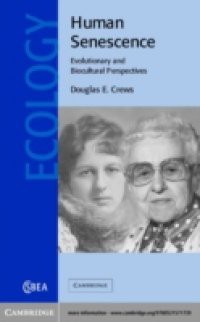Much research on the biology of senescence is on cell-lines, nematodes or fruit flies, that are only of peripheral relevance to the problems encountered in humans. Human Senescence is a 2003 text which reviews the evolutionary biology of human senescence and life span, and the evolutionarily recent development of late-life survival. It examines how human patterns of and variability in growth and development have altered later life survival probabilities and competencies, and how survival during mid-life contributes to senescent dysfunction and alteration. Discussing possibilities of further extending human life span, it gives a better understanding of how humans came to senesce as slowly as we do over our lifespan. Bringing together gerontological, anthropological and biocultural research, it explores human variation in chronic disease, senescence and life span as outcomes of early life adaptation and the success of humankind's sociocultural evolution. It is a benchmark publication for all interested in how and why we age.

